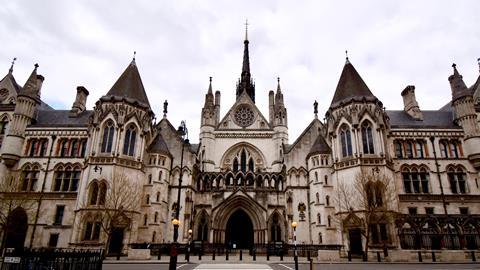A solicitor who advised a woman who posted on social media calling for migrant hotels to be burned after the Southport stabbing has been praised by the Court of Appeal.
Liam Muir, a higher court advocate at Carter Osborne, represented Lucy Connolly before she entered her guilty plea to an offence of inciting racial hatred.
On the evening of 29 July last year, after the murders of three girls in Southport, Connolly, 42, had posted on ‘X’: ‘Mass deportation now. Set fire to all the fucking hotels full of the b****** for all I care.’
Just over three and a half hours later, the childminder removed that message, which had been viewed 310,000 times and reposted 940 times. During violent riots which followed, some rioters attempted to set fire to a hotel housing asylum seekers in Rotherham.
Connolly was jailed for 31 months over the offence, a sentence which she appealed at the Court of Appeal, with support from the Free Speech Union.
Her barrister, Adam King, criticised Muir for conceding on Connolly’s behalf that her offence fell into category A on the sentencing guidelines. King alleged that Connolly had never understood that it was being conceded on her behalf that she had intended to incite serious violence.
Muir said he spoke to Connolly before the hearing at Birmingham Crown Court in August last year and explained to her there would need to be a Newton hearing if she pleaded guilty but denied having the alleged intent. He added that he showed Connolly the sentencing guideline on his laptop, which Connolly denied had happened.
Lord Justice Holroyde rejected Connolly’s evidence, stating: ‘We are quite unable to accept that she signed the endorsement without any understanding of its references to the culpability factor or the starting point.’
In contrast, Holroyde accepted the evidence of Muir, stating the court had ‘no doubt’ he advised the applicant in the way he claimed. ‘He struck us as a conscientious defence lawyer with a clear grasp of the relevant law, practice and procedure and a realistic appraisal of the issues in the case. His evidence made it clear that he had followed his usual practice when representing persons charged with criminal offences, and we reject the suggestion that he gave this client no advice at all on matters of central importance.'
Lord Justice Holroyde, Mr Justice Goss and Mr Justice Sheldon rejected Connolly’s bid for a reduction in her sentence.



























